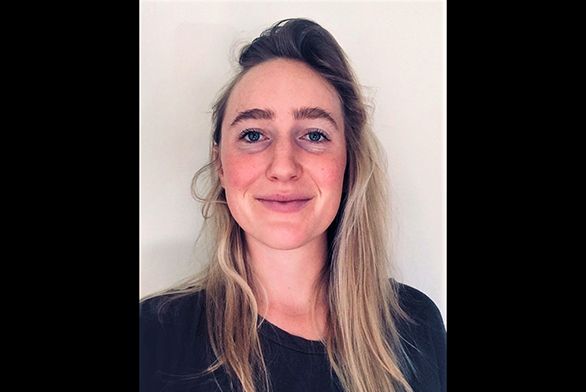Supporting the Whole Student: Nanette Phillips
February 3, 2021 | By Hannah Loomis
This is the second of a two-part series detailing enhanced student support services on the Santa Fe campus, part of a broader collegewide initiative inspired by alumni and student feedback. Click here to read the first part, about academic and writing assistance.

In early summer 2020, Nanette Phillips was hired for the new position of Student Support Coordinator at St. John’s in Santa Fe. While her primary role is providing direct student support and social-emotional programming, Phillips also collaborates with the Dean’s Office and some tutors to ensure continuity in support.
When Phillips joined the staff, her immediate task was to organize the Santa Fe campus’ first-ever Pritzker Promise Bridge Program, designed to provide students with the tools needed to succeed at St. John’s. As part of that program, Phillips put together a mentorship initiative that matches current students with incoming freshmen, so the former can help the latter build relationships and handle any new challenges they encounter.
Because the current group of St. John’s freshmen entered a virtual college experience, the Bridge Program proved to be especially important for navigating a transition that’s in many ways harder than usual; it will run again in January 2021 for incoming January freshmen.
In the fall, Phillips joined with the Dean’s Office to create a student needs survey, which was completed by 148 students and covered a range of topics, from whether students’ basic needs were being met to how they were doing in class.
Not surprisingly, the survey revealed that students are facing unprecedented challenges, both academically and socially. What did surprise Phillips, though, is just how tired they are of being on Zoom, the online platform that hosts their classes. Phillips notes that even though the current generation of college students has grown up on screens, they do recognize how much they need direct human contact. She also posits that the Zoom environment is particularly difficult for many Johnnies because they often choose the college specifically for the opportunities it offers to engage in highly personal, face-to-face intellectual interactions.
For the past few months Phillips has worked with the student-run Johnnie Community Board (JCB) to pilot a series called Emotions of Seminar. These tutor-led conversations allow students to share their multifaceted seminar experiences and, in the process, perhaps even transform them.
Tutor Sarah Davis led two Emotions of Seminar sessions in the 2020 fall semester. She was excited to join the project because she believes that seminar can be an emotional experience—not just for students but for tutors as well.
“It’s hard to be in a big group, try to express yourself, and feel validated in your participation,” she says. “The first thing that I really emphasized for the students was that we should take the works personally. It’s important to be invested in them. And as we have a strong reaction to something, the quality of these texts allows us to double back and change who we are and the kinds of reactions that we have.”
“On the other hand,” Davis continues, “[seminar] also is an opportunity to reflect on why you react in such a way, and to sit with that. We want to pull ourselves into the classroom, but we also want to let the classroom get into our lives and actually change us.”
It is this interweaving of academic and non-academic life that makes Johnnie life so rewarding—and sometimes challenging, too, especially under the current set of circumstances.
While classes continue to be conducted virtually, one big question for Phillips is how best to connect with students and help them without relying too much on Zoom and other platforms that foster tech fatigue.
“How do we reach the students?” she asks. “Especially those who might really, really need it but are withdrawn or checked out or are just having a hard time engaging?”
The overarching aim of the student support programs, Phillips emphasizes, is to encourage students to ask for help—no matter what kind of help it might be. And that, she finds, is the most rewarding aspect of her job.
“I love working one on one with students—which I’m doing on a daily basis—and looking at what they most need and want for their lives, and helping them set realistic expectations for themselves right now in this challenging environment. And helping to give themselves grace and understanding in this time, when I don’t think any of us is at our absolute best.”

